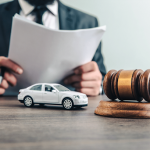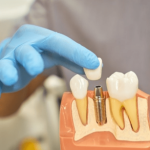obstructive apneaobstructive apneaWhat Is Apnea Sleep?
Sleep apnea is a significant sleep condition that occurs when you stop and resume breathing during sleep. Untreated obstructive obstructive apnea may result in loud snoring, daytime fatigue, and more severe conditions such as heart difficulties and high blood pressure.
This disorder is distinct from main or normal snoring. Snoring may be caused by nasal or pharyngeal disorders, sleeping position (particularly sleeping on the back), being overweight or elderly, or using alcohol or other depressants.
Modvigil 200(Provigil) and Modalert 200 is used to treat excessive sleepiness in patients with narcolepsy and
residual sleepiness in certain cases of sleep apnea. Scientists believe the drug affects the sleep-wake centers
in the brain. The most common side effect is a headache.
Although both primary snoring and obstructive apnea-related snoring are caused by the vibration of tissues at the back of the throat, those with obstructive apnea are more likely to:
- Snore far louder than the average snorer.
- Observe their breathing (for over 10 seconds)
- Take short breaths, choke, or gasp for air
- Be restless
Exist several types of sleep apnea?
Three varieties exist:
Obstructive sleep apnea. This is the most prevalent kind. It occurs when your airways continually get totally or partly closed during sleep, often due to the collapse of soft tissue at the back of the throat. Your diaphragm and chest muscles work harder than usual to expand your airways during these episodes. You could begin to breathe with loud gasps or twitch your body. This may disrupt your sleep, reduce oxygen delivery to your essential organs, and cause irregular heart rhythms.
Central sleep apnea. This kind prevents the airway from being obstructed. As a result of malfunctions in the respiratory control center, your brain fails to instruct your muscles to breathe. It relates to the central nervous system’s function. Central obstructive apnea occurs most often in those with neuromuscular diseases such as amyotrophic lateral sclerosis (ALS, or Lou Gehrig’s disease), those who have had a stroke, and those with heart failure or other kinds of heart, kidney, or lung problems.
What Are the Sleep Apnea Symptoms?
Often, the earliest signs of obstructive sleep apnea are not noticeable. Instead, your bed companion may alert you to their presence. The most prevalent indications and symptoms include:
- Snoring
- Daytime drowsiness or weariness
- Insomnia or frequent awakenings throughout the night
- A dry mouth or painful throat upon awakening.
- Suddenly awakening after gasping or choking
- Difficulty focusing, forgetfulness, or irritability
- Depression or nervousness
- Persistent need to urinate at night
- Night perspiration
- Sexual abnormalities
- Headaches
How can physicians identify sleep apnea?
Before diagnosing you with sleep apnea, your physician will want to rule out any other potential causes for your symptoms. For this, they will:
Inquire whether you are taking any medicines, such as opioids or other substances that might impair your sleep.
Consider other medical causes or diseases that might account for symptoms.
Inquire whether you’ve lately gone to elevations over 6,000 feet. Some regions have low oxygen levels, which may trigger sleep apnea symptoms for a few weeks following visiting.
How is apnea of sleep treated?
If your doctor diagnoses you with obstructive apnea, they will recommend therapy depending on the severity of your disease. For moderate instances, lifestyle modifications may suffice. They may recommend that you reduce weight, give up smoking, or address your nasal allergies (if you have any).
If these therapies do not alleviate your symptoms or if you have a moderate to severe form of sleep apnea, your doctor will suggest the following:
Positive airway pressure constant (CPAP). During sleep, this equipment provides air pressure via a mask. This air pressure is larger than the surrounding air pressure, which aids in keeping your upper airway passageways open to prevent apnea and snoring. If your CPAP mask is bothersome, speak with your doctor about alternative sleep aids.
Visit: Tech Times Media









